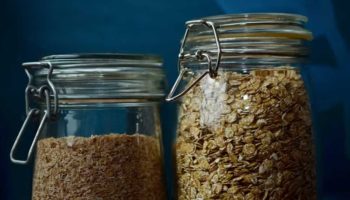In your own garden, you meet with family and friends, the fresh scent of flowers stimulates the senses and digging in the bed provides a relaxing balance to the daily office work. Good, therefore, if you can do without the use of chemical products in the garden. The amazing thing: All you need to do is reach into the spice rack!
Because cinnamon not only goes well with apple pie or on the frothy milk crown of your cappuccino – cinnamon is also highly valued by gardening professionals. In the garden, the golden-brown spice is a particularly versatile care product and a weapon against pests.
1. aid for mold and fungal infestation
Especially the warm, moist soil of potted plants is susceptible to mildew and other fungi. However, mildew also strikes relentlessly at other plants in the bed, covering their leaves with white spots. Cinnamon has proven to be a very effective remedy in this regard, gradually causing the mildew to disappear. By the way, the use of cinnamon prevents fungus from forming in the first place.
If only the soil is affected, it is sufficient if you simply sprinkle ground cinnamon powder around the plant. If the leaves of the plant are also affected or if the fungal infestation is particularly persistent, it is advisable to prepare a cinnamon solution. To do this, dissolve 1 level teaspoon of cinnamon in 5 liters of warm water. Let the solution steep for an hour before using it in the garden and applying it to the affected areas.
2. Protection for seedlings
The tender seedlings in the “flower nursery” need special protection. Therefore, immediately after planting, you should sprinkle cinnamon powder around the vulnerable little ones. Now fungi and other pests have no chance, and the sprouts can thrive unmolested. Alternatively, you can also rub the seeds with a little cinnamon or add the cinnamon to the fertilizer.
3. Doping for cuttings
In order for your cuttings to develop powerful roots, you should dust the cut surface with cinnamon. Then store upside down for about an hour before planting the cutting. The cinnamon will keep the plants growing healthy and protect them from disease through its disinfectant effects.
4. plant care with cinnamon
The disinfecting effect of cinnamon also helps plants in the healing process. If the hedge trimmer has gone too wild or the delicate perennial has been caught in a gust of wind, you should apply cinnamon to the “wounds”.
5. drive away ants
In some places in the garden – or even in the apartment – you do not want ants. Especially since they love the honeydew of aphids and defend the pests against their natural predators. Ants, on the other hand, do not like the spicy smell of cinnamon at all. If they eat it, it is even poisonous for them. Therefore, if you spread some cinnamon powder on the floor, it will drive away the ant plague within a short time.
6. ward off parasites and mosquitoes
You can even fight mosquitoes without chemicals. Cinnamon can easily be used to make a powerful cinnamon oil mosquito repellent, which also has a pleasant scent. For the cinnamon oil you need only:
- Glass jar
- cinnamon sticks
- mild oil (high quality olive or sunflower oil)
Place the cinnamon sticks close together in the glass jar. Any gaps should be filled with fragments of the cinnamon sticks. Now pour the oil over the whole thing until the cinnamon sticks are completely covered. Leave to infuse in a warm place for three weeks, then strain the oil using an old tea towel and collect it in a bowl. Now you have a first-class, wonderfully aromatic cinnamon oil. Drizzle the oil over a handkerchief, then place the handkerchief on a plate by the window: even if the window is fully open, no mosquito will ever enter your room again! Or you can rub it on your arms and legs and still be spared from bites even outside.
By the way: Not only ants, but also all kinds of vermin can’t stand the smell of cinnamon at all. Protect your plants from pesky insects and parasites by dripping some cinnamon oil on a cloth and placing it in the bed.
It’s amazing the magic hidden in this spice. Your garden will certainly thank you for avoiding toxic chemical spills this way. Have you ever used cinnamon in your garden and had success?



